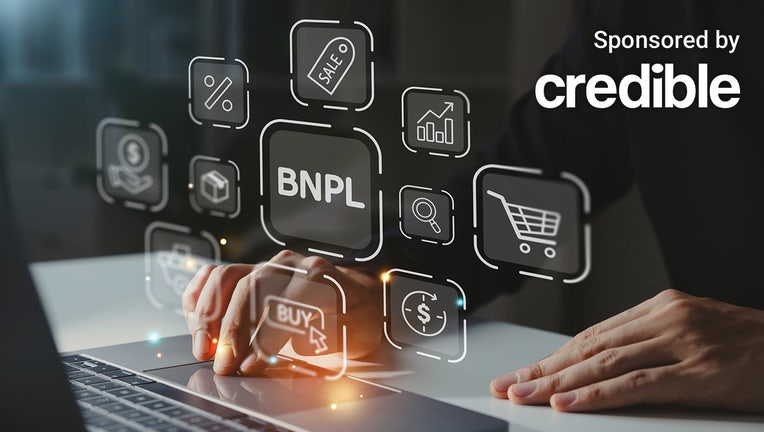CFPB looks to regulate buy now, pay later companies

The Consumer Financial Protection Bureau (CFPB) said it is looking to bring the rules for the buy now, pay later (BNPL) industry in line with those already established for credit cards. (iStock)
The Consumer Financial Protection Bureau (CFPB) said it plans to start regulating buy now, pay later (BNPL) companies over concerns that the fast-growing financing products are harming consumers.
The CFPB, which does not currently oversee BNPL providers, plans to issue guidance or rules that would bring the sector in line with the standards that Congress has already established for credit cards, the agency said in a report released in September. As part of this review, the agency will also ensure that BNPL lenders, just like credit card companies, are subject to appropriate supervisory examinations.
As interest in the financial product heats up, so have calls for more regulations. Last December, CFPB Director Rohit Chopra requested information on the industry practices and risks from Affirm, Afterpay, Klarna, PayPal and Zip, all of which are BNPL firms. The latest report is a culmination of the findings related to that information request.
"Buy Now, Pay Later is a rapidly growing type of loan that serves as a close substitute for credit cards," Chopra said in a statement. "We will be working to ensure that borrowers have similar protections, regardless of whether they use a credit card or a Buy Now, Pay Later loan."
If you need help funding a large purchase or project, a personal loan can be another financing option to consider. Credible makes it easy to see your prequalified personal loan rates from various lenders, all in one place.
CREDIT CARD CONSOLIDATION MAY SAVE YOU THOUSANDS AS PERSONAL LOAN RATES ARE AT RECORD LOWS
CFPB report identifies areas of potential consumer harm
The CFPB's report mentioned several areas in the BNPL space that it classed as "potential consumer risks." One of these key areas was consumer privacy and data protection.
The CFPB said that collecting data and monetizing that data puts the consumers' "privacy, security, and autonomy" at risk.
Chopra also said the agency is concerned that as big tech players enter the space, it may consolidate market power, thus reducing long-term innovation, choice and price competition in the industry. It also gives these larger players access to an enormous amount of consumer data.
"In the United States, we have generally had a separation between banking and commerce," Chopra said. "But, as Big Tech-style business practices are adopted in the payments and financial services arena, that separation goes out the door."
Chopra also raised the flag on these issues after Apple announced its BNPL product, Apple Pay Later, earlier this year.
If you have taken on debt through buy now, pay later and need help paying it down, a personal loan can help. You can visit Credible to compare multiple personal loan lenders at once and choose the one with the best interest rate for you.
BUY NOW, PAY LATER TRANSACTIONS REACH $120B IN 2021: REPORT
BNPL borrowers may be struggling to pay off debt, CFPB says
BNPL providers partner with retailers to allow shoppers the ability to split the cost of their online purchases into multiple installments at checkout. Part of the appeal is that the installment payments, which typically begin within a few weeks of the purchase, are interest-free. However, missed payments can result in late fees and other penalties.
BNPL firms typically don't report to credit bureaus, making them a relatively accessible option for consumers. The CFPB is concerned that the ease of access to this financing product could leave consumers at risk of quickly becoming overextended and may drive them deeper into debt.
Consumers' rate of approval for BNPL financing grew to 73% in 2021, up from 69% in 2020, and consumers increasingly sought the financing option to pay for routine expenses like groceries and utilities, according to the CFPB.
But the agency said that metrics on loan performance showed that BNPL borrowers may be struggling to meet their debt obligations. More than 10% of borrowers were charged at least one late fee in 2021, compared to 7.9% in 2020. And the industry's charge-off rate, or the rate of uncollectible loans, jumped to 2.39% in 2021, up from 1.83% in 2020.
Bob Bilbruck, CEO at Captjur, said that increased regulation on this industry would not likely dampen the appetite for BNPL programs because demand is high, particularly among millennials born between 1981 and 1996 and Gen Z consumers.
"The ugly reverse side of this, in my opinion, is, in a recessionary period, the delayed debt that these programs are going to cause within the consumer-based economy could have crippling effects down the road," Bilbruck said. "BNPL could be the financial weapon of mass destruction that actually takes down the consumer credit vertical and the companies that choose to back these programs could be affected greatly."
If you are looking for alternative forms of credit to help fund a large purchase, you could consider using a personal loan. Visit Credible to find your personalized interest rate today.
BNPL INCLUSION IN CREDIT REPORTS CAUSES GROWING CONSUMER CONCERNS, SURVEY CLAIMS
Have a finance-related question, but don't know who to ask? Email The Credible Money Expert at moneyexpert@credible.com and your question might be answered by Credible in our Money Expert column.

